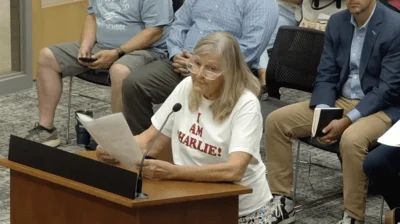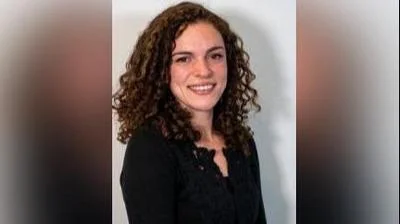State Senator Laura Ellman | Illinois General Assembly
State Senator Laura Ellman | Illinois General Assembly
According to the Illinois General Assembly site, the legislature summarized the bill's official text as follows: "Amends the Illinois Public Aid Code. Expands the categories of families eligible for child care assistance to include families with a parent or guardian who is employed as a mental health care worker, teacher, or health care provider and has income below the specified income threshold established for such families. Provides that notwithstanding any other provision of law or administrative rule to the contrary, beginning in State Fiscal Year 2026, for families with a parent or guardian who is employed as a mental health care worker, teacher, or health care provider, the specified income threshold shall be no less than 300% of the then-current federal poverty level for each family size. Defines terms. Effective July 1, 2025."
The following is our breakdown, based on the actual bill text, and may include interpretation to clarify its provisions.
In essence, this bill amends the Illinois Public Aid Code to expand eligibility for child care assistance to families with a parent or guardian employed as a mental health care worker, teacher, or health care provider. Starting in State Fiscal Year 2026, the income threshold for these families will be set at no less than 300% of the federal poverty level. The bill also mandates that the Department of Children and Family Services report annually on the number of children receiving child care assistance. Additionally, the Department must update the Child Care Assistance Program Eligibility Calculator on its website. The effective date of the bill is July 1, 2025.
Laura Ellman has proposed one other bill since the beginning of the 104th session.
Ellman graduated from Grinnell College in 1987 with a BS.
Laura Ellman is currently serving in the Illinois State Senate, representing the state's 21st Senate District. She replaced previous state senator Michael Connelly in 2019.
Bills in Illinois follow a multi-step legislative process, beginning with introduction in either the House or Senate, followed by committee review, floor debates, and votes in both chambers before reaching the governor for approval or veto. The General Assembly operates on a biennial schedule, and while typically thousands of bills are introduced each session, only a fraction successfully pass through the process to become law.
You can read more about bills and other measures here.
| Bill Number | Date Introduced | Short Description |
|---|---|---|
| SB1225 | 01/24/2025 | Amends the Illinois Public Aid Code. Expands the categories of families eligible for child care assistance to include families with a parent or guardian who is employed as a mental health care worker, teacher, or health care provider and has income below the specified income threshold established for such families. Provides that notwithstanding any other provision of law or administrative rule to the contrary, beginning in State Fiscal Year 2026, for families with a parent or guardian who is employed as a mental health care worker, teacher, or health care provider, the specified income threshold shall be no less than 300% of the then-current federal poverty level for each family size. Defines terms. Effective July 1, 2025. |
| SB0008 | 01/13/2025 | Creates the Safe Gun Storage Act. Provides that a firearm owner shall not store or keep any firearm in any premises where the firearm owner knows or reasonably should know a minor without the lawful permission of the minor's parent, guardian, or person having charge of the minor, an at-risk person, or a prohibited person is likely to gain access to the firearm unless the firearm is secured in a locked container, properly engaged so as to render the firearm inaccessible or unusable to any person other than the owner or other lawfully authorized user. Provides that if the firearm is carried by or under the control of the owner or other lawfully authorized user, then the firearm is deemed lawfully stored or kept. Provides that a violation of the Act is subject to a civil penalty not to exceed $500, except (i) if any person knows or reasonably should know that a minor, an at-risk person, or a prohibited person is likely to gain access to a firearm belonging to or under the control of that person, and a minor, an at-risk person, or a prohibited person obtains the firearm, the civil penalty shall not exceed $1,000 and (ii) if a minor, an at-risk person, or a prohibited person obtains a firearm and uses it to injure or cause the death of a person or uses the firearm in connection with a crime, the civil penalty shall not exceed $10,000. Provides that the court may order a person who is found in violation of the Act to perform community service or pay restitution in lieu of the civil penalties imposed under this Section if good cause is shown. Provides that nothing in the Act shall be construed to preclude civil liabilities for violations of the Act. Provides that a violation of the Act is prima facie evidence of negligence per se in any civil proceeding if a minor, an at-risk person, or a prohibited person obtains a firearm and causes personal injury to the death of oneself or another or uses the firearm in the commission of a crime. Provides that an action to collect a civil penalty under the Act may be brought by the Attorney General or the State's Attorney of the county in which the violation occurred. Provides that any money received from the collection of a civil penalty under the Act shall be deposited in the Mental Health Fund. Defines terms. Amends various Acts to make conforming changes. Effective January 1, 2026. |






 Alerts Sign-up
Alerts Sign-up